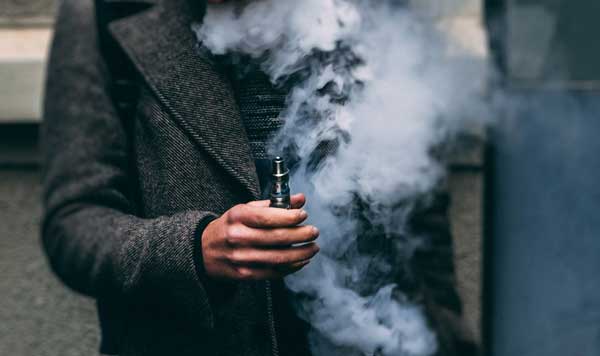Elevate your outdoor cooking experience with Pax Ace Hardware’s exceptional selection of grills. As your trusted local Ace Hardware store, we offer a diverse range of grilling solutions to satisfy every culinary need, from casual backyard barbecues to gourmet grilling adventures. Our expert team is here to guide you in choosing the perfect grill to enhance your outdoor gatherings. Explore our top picks and experience the quality and performance that Pax Ace Hardware is known for. Visit us today at Pax Ace Hardware in Wilmington, DE, and discover why we’re the helpful place for all your grilling needs.
Jason & Theresa Veasey, owners of Pax Ace Hardware, emphasize the importance of community and personalized service. “We’re dedicated to providing our customers with the best products and expert advice to make their outdoor cooking experiences memorable. Our selection of grills is carefully curated to meet the diverse needs of our customers, ensuring that everyone can find the perfect grill for their backyard celebrations.”
Weber Genesis SA-E-330 3 Burner Liquid Propane Grill Indigo
The Weber Genesis SA-E-330 is a testament to Weber’s commitment to quality and innovation. With its PureBlu burner system and stainless steel grates, this grill ensures consistent heat and exceptional searing capabilities. The 13,000 BTU Sear Zone Burner adds intense flavor and perfect sear marks to your dishes. Featuring a Grill Locker for organized storage and a built-in lid thermometer for precision, this grill is perfect for serious grill enthusiasts. Its 12-year limited warranty underscores its durability and reliability.
“The Weber Genesis SA-E-330 is a game-changer for any outdoor cooking enthusiast,” says Jason Veasey, owner of Pax Ace Hardware. “Its innovative design and superior performance make it a must-have for those who love to grill.”
Big Green Egg 24 in. XLarge Charcoal Kamado Grill and Smoker Green
The Big Green Egg XLarge model is perfect for large gatherings, offering a versatile cooking experience with its ability to grill, roast, smoke, sear, and bake. Its ceramic design retains heat and moisture, enhancing natural flavors, while the patented airflow system ensures precise temperature control. With a primary cooking area of 452 square inches, this grill is ideal for cooking multiple meals at once. Supported by a limited lifetime warranty, it promises long-lasting performance.
“The Big Green Egg is not just a grill; it’s an all-in-one outdoor cooking solution,” notes Theresa Veasey, co-owner of Pax Ace Hardware. “Its versatility and quality make it a favorite among our customers.”
Blackstone 4 Burner Liquid Propane Outdoor Griddle Black
The Blackstone 4 Burner Griddle offers a robust and versatile cooking experience with its solid rolled steel construction and 60,000 BTUs of adjustable heat. Perfect for large gatherings, it can cook up to 28 burgers at once, making it ideal for entertaining. With a rear grease management system and a spacious 720 square inch cooking area, this griddle ensures easy cleanup and ample cooking space. It includes practical features like a front/side shelf and tool holder, enhancing your outdoor cooking experience.
“Whether you’re cooking breakfast or dinner, the Blackstone Griddle delivers exceptional results,” says Alexis, manager at Pax Ace Hardware. “Its versatility and ease of use make it a popular choice among our customers.”
Weber Slate Rust-Resistant 1500215 3 Burner Liquid Propane Outdoor Griddle Black 30 IN ACE EXCLUSIVE
The Weber Slate Rust-Resistant Griddle is designed for immediate use with its pre-seasoned carbon-steel cooktop. It boasts 36,000 BTU burners for rapid heating and an even cooking surface, enhanced by a digital temperature display for precision. Featuring a Weber Works caddy and closed cabinet storage, it offers convenience and organization for your cooking essentials. Its versatile design and rust-resistant construction make it a durable addition to any outdoor kitchen.
“This Weber Griddle is an Ace Hardware exclusive, offering unique features that enhance the grilling experience,” remarks Caitlin, manager at Pax Ace Hardware. “It’s perfect for those who value quality and innovation in their outdoor cooking tools.”
Traeger Woodridge Wood Pellet Grill Black
The Traeger Woodridge Pellet Grill offers a wood-fired flavor experience with user-friendly controls for consistent results. Its P.A.L. Pop-And-Lock system and WiFIRE connectivity provide customization and remote monitoring, making grilling convenient and precise. The grill’s EZ-Clean Grease & Ash Keg simplifies cleanup, while ModiFIRE accessories enhance cooking versatility. With a primary cooking area of 860 square inches, this grill is perfect for those who love to experiment with flavors and techniques.
“The Traeger Woodridge Grill is perfect for those who appreciate the art of smoking and grilling,” says Jason Veasey. “Its advanced features and wood-fired flavor make it a standout choice for any grill master.”
For all things Ace Hardware, please visit acehardware.com.







